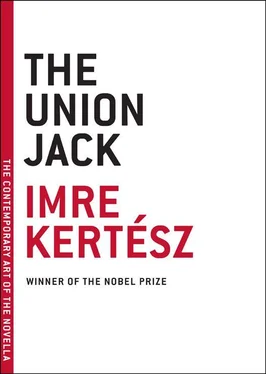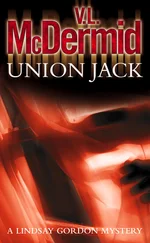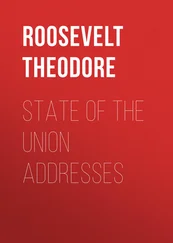
The Union Jack
by
Imre Kertész
“fog before us,
fog behind us,
and beneath us
a sunken country”
(Mihály Babits)
If I may perchance wish now, after all, to tell the story of the Union Jack, as I was urged to do at a friendly gathering a few days — or months — ago, then I would have to mention the piece of reading matter which first inculcated in me — let’s call it a grudging admiration for the Union Jack; I would have to tell about the books I was reading at the time, about my passion for reading, what nourished it, the vagaries of chance on which it hinged, as indeed does everything else in which, with the passage of time, we discern what, whether it be the consequentiality of destiny or the absurdity of destiny, is in any event our destiny; I would have to tell about when that passion started, and whither it propelled me in the end; in short, I would have to tell almost my entire life story. And since that is impossible, in the lack not just of the requisite time but also of the requisite facts, for who indeed, being in possession of the few misleading facts one deems to know about one’s life, could say of himself that he even recognises right away as his life, that process, course and outcome (exit or exitus) which is so totally obscure to himself — himself above all; so probably it would be best if I were to begin the story of the Union Jack with Richard Wagner. And though Richard Wagner, like a persistent leitmotif, would lead us with uncanny sureness, by a direct path, to the Union Jack, I would have to broach Richard Wagner himself at the editorial office. That editorial office exists no more, just as the building in which that one-time editorial office then (three years after the war, to be precise) was for me, for a while, still very much in existence has long existed no more — that one-time editorial office full of gloomy corridors, dusty crannies, tiny, cigarette-smoked rooms lit by bare bulbs, ringing telephones, yells, the quick-fire staccato of typewriters, full of fleeting excitements, abiding qualms, vacillating moods and, later, the fear, unvacillating and ever less vacillating, which seeped out from every cranny, as it were, to squat over everything, the one-time editorial office that had long since not conjured up long-bygone editorial offices, where in those days I was obliged to turn up at some execrably early hour, something like seven o’clock every morning, say. With what sort of hopes, I wonder? — I mused aloud and publicly in the friendly gathering that had been urging me to tell the story of the Union Jack. The young man (he would have been about twenty) who, through a sensory delusion to which we are all prey, I then considered was, and sensed to be, the most personal part of myself, I see today as in a film; and one thing that very likely disposes me to this is that he himself — or I myself — somehow also saw himself (myself) as in a film. This, moreover, is undoubtedly what renders tellable a story that otherwise, like every story, is untellable, or rather not a story at all, and which, were I to tell it in that manner anyway, would probably drive me to tell precisely the opposite of what I ought to tell. That life, that twenty-year-old young man’s life, was sustained solely by its formulability ; that life ground along, with its every nerve-fibre, every fitful effort, solely at the level of formulability . That life strove with all its might to live , and in that respect stood in contrast, for example, to my present striving, hence also my present formulations, these incessantly miscarried formulations, colliding incessantly against the unformulable, grappling — naturally, to no avail — with the unformulable: no, the striving for formulation, then and there, was actually aimed at keeping the unformulable — namely, the essence, which is to say this life, grinding and stumbling along in the dark, lugging along the burden of darkness — in the shadows, because that young man (I) could only live this life in that way. I engaged with the world through reading, that epidermis around the layers of my existence, as through some form of protective clothing. Tempered by reading, distanced by reading, obliterated by reading, that world was my fallacious but sole liveable, indeed, now and again, almost tolerable world. In the end, the predictable moment arrived when I became a lost cause for that editorial office, and thereby a lost cause for … I all but said for society too, had there been a society, or rather if what there was had been a society, then I became a lost cause for what passed for society, for that horde which now whimpered like a whipped dog, now howled like a ravening hyena, always greedy for any provender that it could tear to shreds; I had long been a lost cause for myself, and I almost became a lost cause for life as well. But even at that rock bottom — at least what, at the time, I supposed to be rock bottom, until I got to know depths that were deeper still, ever deeper, depths that were bottomless — even at that rock bottom the formulability was retained, the camera setting, one might say: the camera lens of a pulp thriller, for example. Where I acquired it, what its title was, what it was about, I have no idea. I don’t read thrillers any longer, ever since, in the midst of reading one thriller, I suddenly caught myself being utterly uninterested in who the murderer might be; that in this world — a murderous world — it was not only misleading, and actually outrageous, but also quite unnecessary for me to fret about who the murderer was: everybody was. That way of formulating it, however, did not occur to me at the time, some forty years ago, perhaps; it was not a formulation that would have seemed of any use to my strivings at that time, some forty years ago, perhaps, as it was merely a fact, one of those simple — albeit obviously not entirely insignificant — facts among which I lived, among which I had to live (because I wanted to live): it was much more important to me that the main protagonist, a man with an exciting job — a private eye, maybe — had the habit, before embarking on one of his deadly dangerous enterprises, of always “treating himself” to something, a glass of whisky, or occasionally a woman, but sometimes he would make do with an aimless, headlong spin along the highway in his car. That detective novel taught me that a person needs pleasure in those rare intervals in one’s torture sessions: until then I would not have dared to formulate that, or if so, then at best as a sin. In those times, deadly dangers were already menacing in the editorial office, deadly boring dangers, to be quite precise, but no less deadly for all that, ever fresher ones every day, albeit the same ones every day. In those times, after a short and utterly inexplicable temporary hiatus, food coupons were again in use, most notably for meat, though quite unnecessarily as it happened — most especially for meat — since there were insufficient meat stocks to justify the reciprocatory gravity of issuing coupons for meat. Around that time, next-door to the editorial office, they opened, or reopened, the so-called Corvin Restaurant, which is to say the so-called Corvin Restaurant in the so-called Corvin Department Store, where (the store being under foreign ownership or, to be more punctilious, in the hands of the occupying power) they even served meat, and without meat coupons at that, although the meat was on offer at double price (in other words, they asked double the price that would have been asked for elsewhere, had meat been on offer anywhere else); and around that time, if the prospect of a fresher, deadly boring deadly danger lay in wait for me at the editorial office, usually in the form of one of those otherwise so splendidly styled “staff conferences,” on such occasions I would “treat myself” beforehand to a breaded cutlet in this restaurant (very often out of an advance on my salary for the following month, since the institution of the advance, obviously as the result of some oversight, still remained operative for a while, everything else having long ceased to be operative); and however many and whatever sort of deadly boring dangers to life I might have to confront, the awareness that I had “treated myself” beforehand, the awareness of my foresightedness, my secret, even my
Читать дальше













